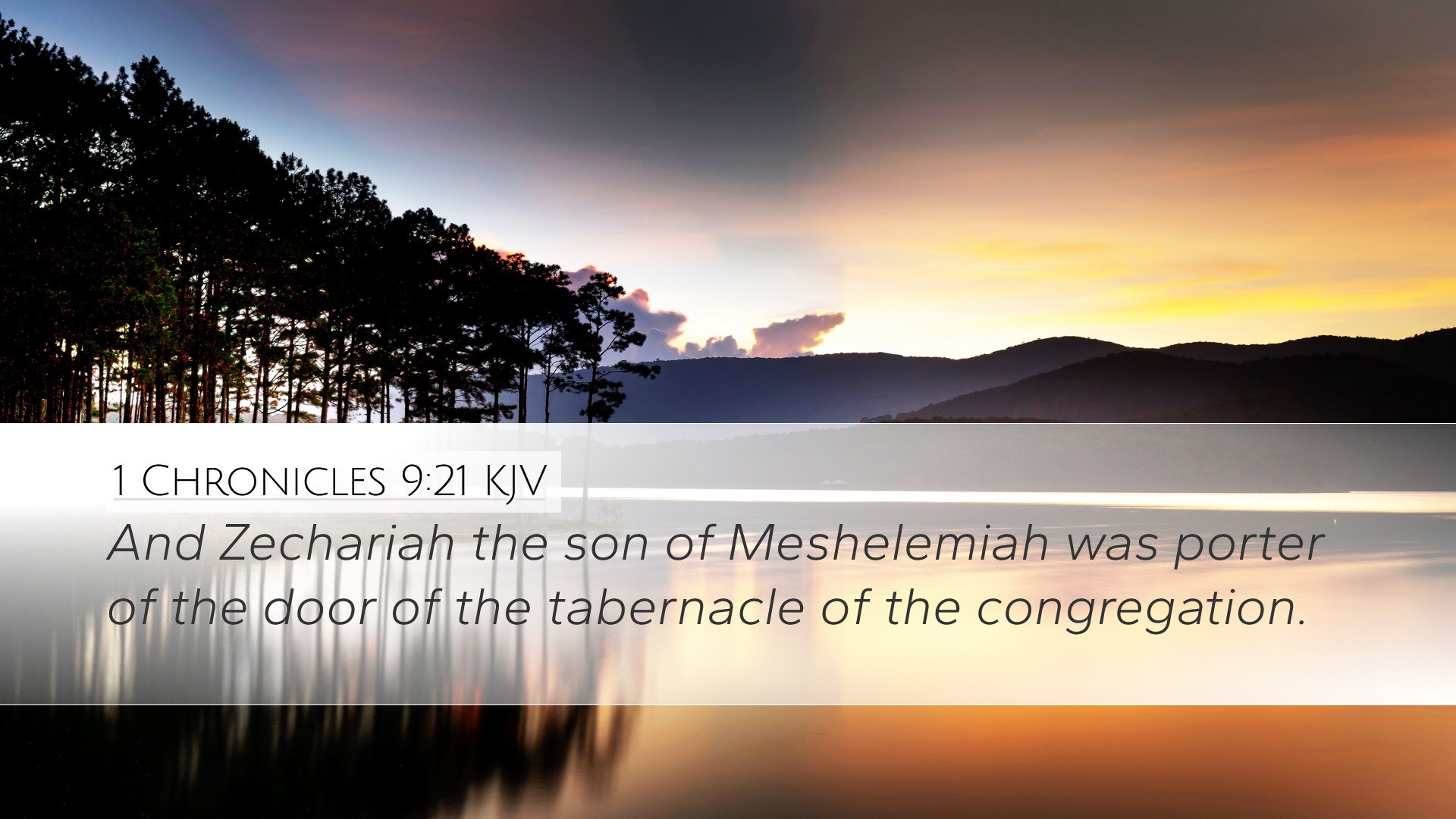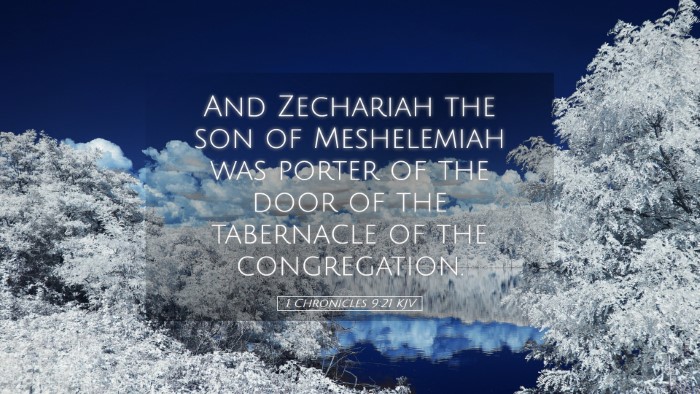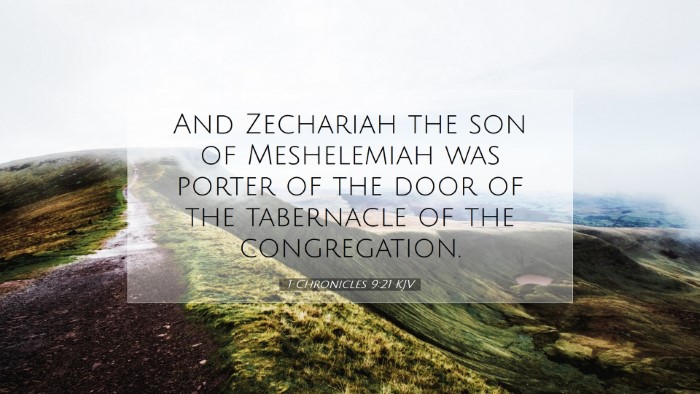Commentary on 1 Chronicles 9:21
1 Chronicles 9:21 states: "And Zechariah the son of Meshelemiah was porter of the door of the tabernacle of the congregation." This verse, while seemingly straightforward, is rich with implications about service, office, and the order established in the ancient Israelites' worship practices.
Contextual Background
The book of Chronicles is often regarded as a theological reflection on the history of Israel, with a strong emphasis on worship and the centrality of the temple. Chapter 9 deals specifically with the return of the exiles, the organization of the Levites, and the responsibilities that were assigned to different groups within the temple structure.
Interpretation of the Verse
In understanding 1 Chronicles 9:21, it is essential to consider the role and significance of the "porter" or "gatekeeper." The Hebrew term used here signifies one who guards the entrances to holy places, indicating both privilege and responsibility.
Insights from Matthew Henry
Matthew Henry emphasizes that the porters were critical for maintaining order within the worship setting. He comments on how their duties included not just guarding the doors but also ensuring that the sanctity of the tabernacle was upheld. Henry notes that the mention of Zechariah signifies God's providential choice of individuals for specific roles within His service.
Insights from Albert Barnes
Albert Barnes provides a detailed examination of the function of Zechariah as a porter. He highlights that this role was vital in preventing unauthorized individuals from entering the tabernacle, reinforcing the importance of holiness in worship. Barnes underscores that Zechariah, being identified by his lineage, shows the continuity of divine order through generations—indicating that God selects specific families for particular tasks in His sanctuary.
Insights from Adam Clarke
Adam Clarke elaborates on the porter's role by linking it to the broader themes of service and worship in the life of the Israelites. Clarke posits that such responsibilities were not just menial tasks; they were a part of the divine service that required reverence and dedication. He suggests that the appointment and family ties of Zechariah highlight the significance of the Levitical priesthood and its role in spiritual oversight.
Theological Implications
The appointment of Zechariah as a porter symbolizes the importance of access to God and the protective measures surrounding holiness. Each ministerial duty, no matter how humble, contributes to the divine order and the sanctity of worship.
- Service and Responsibility: This verse reinforces the notion that serving God often involves practical, everyday tasks that should be performed with diligence and respect.
- Holiness in Worship: By controlling access to the tabernacle, the porters upheld the holiness demanded by God, reflecting His character to His people.
- Divine Order: The illustration of lineage in Zechariah’s service signifies the intentional choices made by God in orchestrating His plans through dedicated individuals.
Application for Today
For contemporary believers, this verse serves as a reminder of the importance of every role within the body of Christ. Whether as a pastor, teacher, or layperson, each act of service contributes to the greater ministry of the church. Just as Zechariah stood at the gates of the tabernacle, believers today act as gatekeepers of faith, tasked with guarding the truths of the Gospel and fostering an environment of reverence in worship.
Conclusion
In summary, 1 Chronicles 9:21 encapsulates significant themes of service, order, and the holiness of worship within the context of Israel's history. Drawing from the insights of respected commentators like Matthew Henry, Albert Barnes, and Adam Clarke, it is clear that every position within the temple and church holds divine significance and contributes to God's overarching plan for His people.


